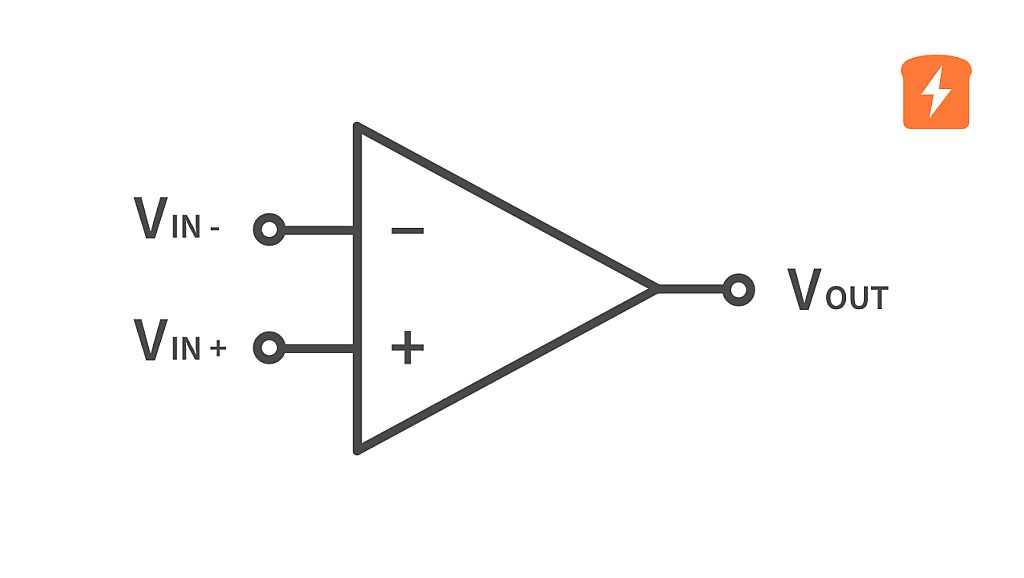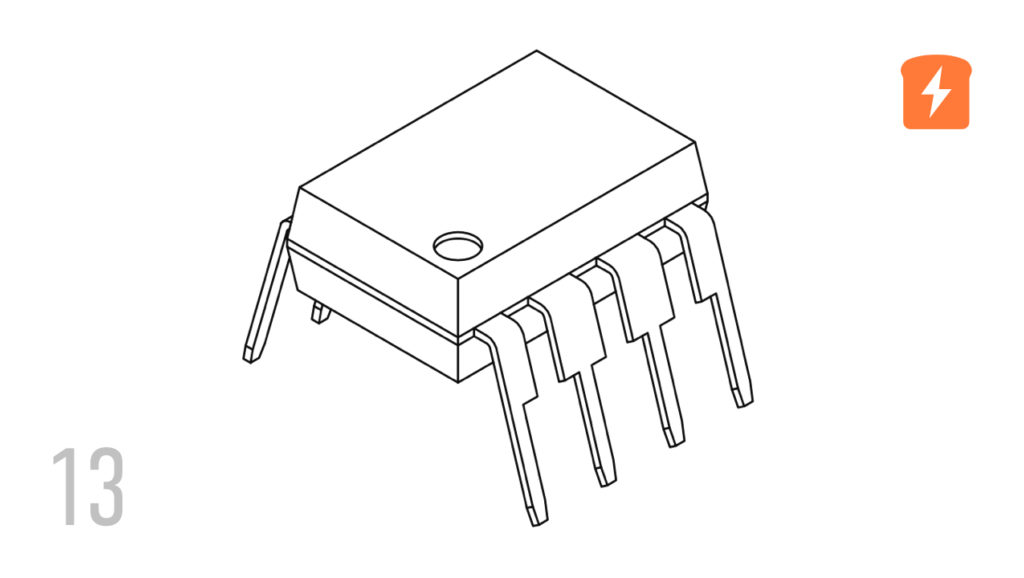Comparator
While there are specialized devices that, while similar in appearance to an op-amp, are focused solely on comparing one voltage to another changing the output depending on which signal is greater.
A comparator is a specialized op-amp circuit that compares two input voltages and produces an output that is always at either one of two states, indicating the greater or less than relationship between the inputs.
Electronic Devices : Conventional Current Version, 9th Edition by Thomas L. Floyd
A comparator is a circuit that compares the signal voltage on one input with a reference voltage on the other.
Grob’s Basic Electronics, 11th Edition by Mitchel E. Schultz
In electronics, a comparator is a device that compares two voltages or currents and outputs a digital signal indicating which is larger. It has two analog input terminals

A comparator consists of a specialized high-gain differential amplifier. They are commonly used in devices that measure and digitize analog signals, such as analog-to-digital converters[clarification needed] (ADCs), as well as relaxation oscillators.









